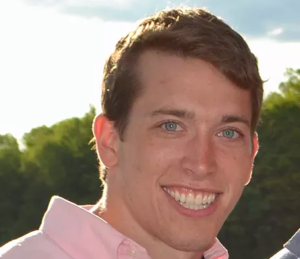(Photo via Wikipedia / Public Domain)
The SEALS, an elite naval military group, are said to be among the tightest-knit units in the military. These “band of brothers” are taught that when things go wrong, they are not only supposed to keep it in the family (the Navy), but to keep it in the immediate family (the SEALs).
“The willingness of an institution to turn a blind eye is common,” Lawrence Brennan, a retired Navy captain and military lawyer who now teaches law at Fordham University, recently told the New York Times.
That’s why when a group of junior Navy SEALs witnessed their highly decorated platoon chief commit murder and, instead of keeping it secret, decided to report it to higher-ups, the story grabbed headlines.
According to the seven reporting commandos, Special Operations Chief Edward Gallagher stabbed a 15-year-old boy in the neck after he had been taken into custody. The killing was unprovoked, unexpected, and improper. It was not the first bad act the platoon had witnessed Gallagher commit. While deployed in Afghanistan, soldiers reported that Gallagher shot and killed a young girl walking along the river on the other side of a surveillance post, and at another time shot and killed an old man.
Deciding enough was enough, the group reported the misdeeds to a commander. But instead of being congratulated for coming forward, they were told in no uncertain terms to stop talking. An ongoing investigation could cost them their careers and worse. No higher-up wanted to give a black eye to the most highly regarded unit in the Navy or one of its star members.
The complaint went nowhere, until the SEALs threatened to go to even higher military brass and the media. At that point, an investigation started, although it was already so long after the events in question there were no forensics, no weapons, no bodies.
Gallagher, however, had posted a photo of himself holding the dead boy by the hair with the caption, “Good story behind this. Got him with my hunting knife.” That, in addition to the eyewitness testimony, was enough to get Gallagher arrested in August 2018, and held in military detention for four months. Ultimately, he was released awaiting trial, due in part to a request made by President Donald Trump.
That trial, held in a military trial tribunal in San Diego, concluded last week. And in spite of the strong evidence against him and his own admissions, which were categorized by his attorneys as just tall tales, Gallagher was acquitted of murder charges.
A surprise witness testified that it was he who ultimately killed the boy by plugging his trachea after he realized the boy wouldn’t survive. An act of kindness, he said. The same witness had never reported this during the investigation phase of the case.
Gallagher was found guilty only of the minor offense of taking a photo with the corpse. Kudos to his defense team, who suggested that the seven soldiers were petulant millennials unused to the tough ways of the military and angry at being picked on by Gallagher.
As a result of the low-level conviction, Gallagher only saw his rand lowered a step and a fine of approximately $5,000. He’ll lose no military benefits or the ability to work as a defense consultant when he retires from the military, expected to happen later this year or next.
According to former New York Mayor Rudolph Giuliani, “The acquittal of Navy Seal Eddie Gallagher was a great victory for Justice. There must be an investigation of the overzealous and unethical behavior of the prosecutors.” I wonder if he would have said the same thing when he was head prosecutor of the Southern District of New York in the 1980s.
It must have taken a lot of guts for the young SEALs to have reported their superior’s crime knowing the backlash it would bring. Many must now be wondering if making similar complaints in the future will be worth it. What are the parameters of proper military conduct if the line between right and wrong is so unclear and if evidence as strong as in the Gallagher case resulted in an acquittal?
The military plays things close to the vest, as it did here. The Gallagher investigation was delayed. He had powerful allies, like Donald Trump and Fox News. But the truth of the matter is, the murder of a prisoner of war (no matter how young) is just not as blameworthy as the murder of a U.S. citizen.
Back in 1970, young army officer William L. Calley, Jr. was charged with murdering 22 unarmed South Vietnamese civilians in My Lai, Vietnam. He was convicted but his punishment was only 3 ½ years in prison, first set to be served at Fort Leavenworth, but later commuted by President Richard Nixon to house arrest.
Conditions soldiers face in war, or elite units like the SEALs in being deployed in foreign countries, are tough — emotionally, physically, and psychologically. But that’s why the laws are in place, so that even groups like the SEALs, known to bend the rules, have some limits.
Toni Messina has tried over 100 cases and has been practicing criminal law and immigration since 1990. You can follow her on Twitter: @tonitamess.
 Kathryn Rubino is a Senior Editor at Above the Law, and host of The Jabot podcast. AtL tipsters are the best, so please connect with her. Feel free to email her with any tips, questions, or comments and follow her on Twitter (@Kathryn1).
Kathryn Rubino is a Senior Editor at Above the Law, and host of The Jabot podcast. AtL tipsters are the best, so please connect with her. Feel free to email her with any tips, questions, or comments and follow her on Twitter (@Kathryn1).

















